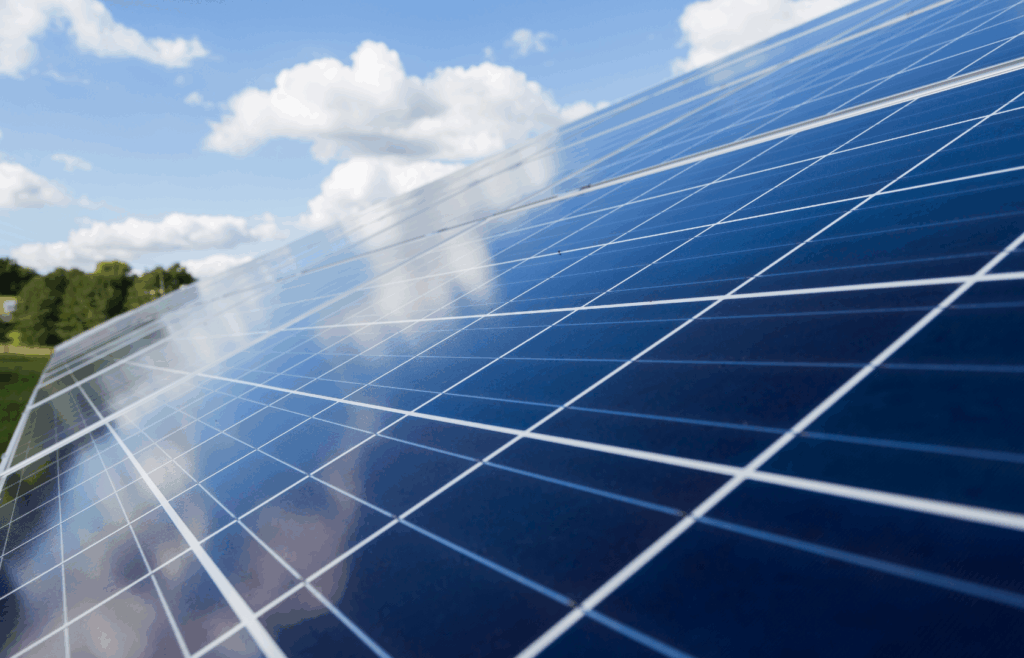
As moms, we are constantly ensuring our home is safe and healthy for our children. We don’t have much time to research new technologies. As renewable energy, especially solar, grows in popularity, it leaves many of us wondering: Are solar panels a safe option?
The short answer is: Yes, solar panels are safe, and contribute to better health outcomes for you, your family, and your community! Let’s learn why.
Understanding the Concern: Electromagnetic Fields from Solar Panels
A common concern from moms is the electromagnetic radiation (EMF) generated by solar panels. Electromagnetic radiation is a form of energy emitted by both natural and human-made sources. It includes radio waves, microwaves, and even visible light. But when it comes to solar panels, the type of EMF generated is incredibly low and poses no risk.
If you’re worried about EMF exposure, it’s worth noting that everyday devices like cell phones, microwaves, and even your Wi-Fi router all emit electromagnetic fields. Yet, most of us carry our phones in our pockets without hesitation. According to the World Health Organization (WHO), low-level EMF exposure, such as that produced by solar panels, has been extensively studied and found to have no adverse health effects. In fact, the radiation emitted by solar panels is negligible compared to everyday sources.
For families with young children or elderly members, these concerns may feel more pressing. Rest assured, the EMF levels from solar panels and associated devices like inverters and smart meters are regulated by the Federal Communications Commission (FCC) and are no more harmful than the signals emitted by your cell phone or home appliances.
MYTH: Solar Panels Cause Cancer
Another common worry is whether solar panels could increase the risk of cancer. This concern often arises when people see large solar farms or residential arrays in their communities. But here’s the key point: There is no scientific evidence linking solar panels to cancer. In fact, the opposite is true. Studies consistently show that solar energy helps reduce the overall risk of cancer because it cuts down on pollution generated by burning fossil fuels.
Traditional energy sources, such as coal and natural gas, release harmful chemicals like sulfur dioxide, nitrogen oxides, and mercury into the air—substances that contribute to cancer and respiratory diseases. By switching to solar, you’re reducing your exposure to these pollutants, making your home—and your neighborhood—healthier.
What’s even more encouraging is that the widespread use of solar energy on a utility scale has the potential to significantly improve air quality for entire communities. As more homes, businesses, and utilities turn to solar power, we can reduce our dependence on polluting fossil fuels, directly benefiting public health, particularly in underserved areas where fossil fuel plants are often located.
TRUTH: Solar is a Lifesaver for Our Climate and Our Health
When it comes to health, solar energy does more than just protect us from immediate pollutants. By reducing our reliance on fossil fuels, solar energy can help tackle the larger, more insidious health risks associated with climate change. As the global climate warms, we face an increase in extreme weather events like heat waves, wildfires, and floods—all of which have devastating consequences for public health.
Solar energy directly addresses these climate threats by cutting down on the greenhouse gases that fuel climate change. This helps lower the frequency and intensity of extreme weather, which is known to cause heart attacks, respiratory issues, and mental health crises.
A Cleaner, Healthier Future: Utility-Scale Solar's Role
It’s not just rooftop solar panels that are improving public health—utility-scale solar systems also have an enormous role to play. Large-scale solar farms provide clean energy to thousands of homes and businesses, reducing the need for coal plants and other fossil fuel-powered electricity sources. This large-scale shift is helping to reduce harmful emissions and improve air quality, which benefits everyone.
Utility-scale solar is also more reliable and resilient in the face of extreme weather events. As solar farms and large battery storage systems become more common, the grid can handle disruptions more effectively. This means fewer power outages during storms, keeping homes powered and ensuring that life-sustaining medical equipment can continue to run in the event of an emergency.
The Hidden Health Benefits of Solar Power at Home
In addition to improving the environment and reducing your family’s exposure to harmful pollutants, installing solar panels in your own home has tangible health benefits, particularly in times of crisis.
- Energy Resilience: With a solar-powered home and battery backup, you can maintain power during blackouts, which is crucial for families that rely on medical devices, refrigerated medications, or other critical systems.
- Reduced Respiratory Issues: By decreasing the need for fossil fuels, solar energy helps improve air quality, which can lead to fewer asthma attacks, less coughing, and better overall respiratory health—especially important for children and the elderly.
- Lower Utility Bills, Less Stress: Financial stress can contribute to a variety of health issues, including anxiety and high blood pressure. By reducing your electricity bills with solar energy, you can take one big worry off your plate.
- Community Health: In many areas, fossil fuel plants are located near lower-income communities. These plants produce toxic air pollutants that have been linked to cancer and respiratory diseases. By transitioning to solar energy, we can reduce the need for these harmful power plants and promote healthier communities.
The Hidden Health Benefits of Solar Power at Home
Switching to solar energy isn’t just a great way to save money—it’s also an investment in your family’s health. Solar panels are safe, effective, and a vital part of the solution to the climate and health crises we face. Whether you’re considering installing solar on your own roof or supporting utility-scale projects in your community, the health benefits are clear. From cleaner air and more reliable energy to reduced climate risks, solar energy is a win for your family and the planet.
Sun Day is our chance to bust myths and build trust. Moms talking to moms can be the most powerful force for change. Let’s use September 21 to share the truth and spread peace of mind. We hope you’ll host or support a Sun Day event to help us spread the word that solar makes our homes and communities safer and healthier for all!
